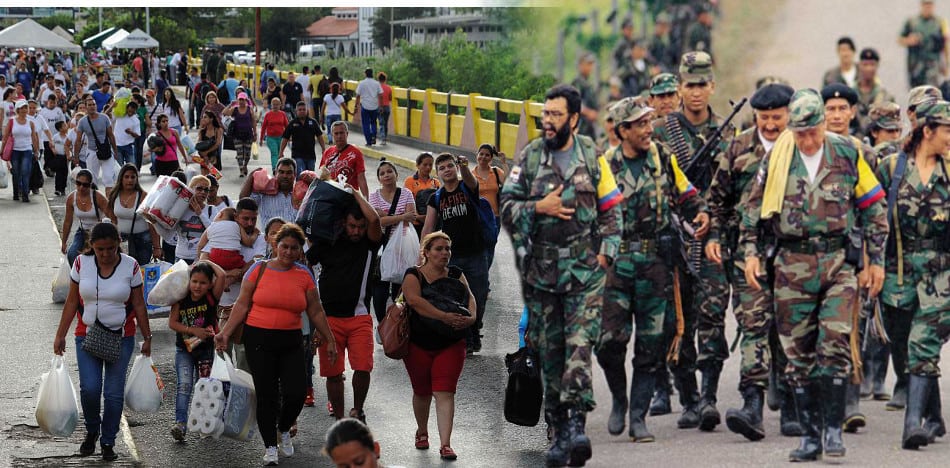
The humanitarian crisis in Venezuela has forced thousands of citizens to flee their country, a situation which Colombian guerrilla groups have exploited. Some Venezuelans are alleged to have joined the ranks of the insurgent group on the porous Colombian-Venezuelan border, out of economic necessity.
Following a bombing on June 13, the defense minister, Luis Carlos Villegas, confirmed the death of 16 alleged members of dissident FARC Fronts 1, 10, and 45, after an operation coordinated by the Joint Special Operations Command in which 14 aircraft of the Kfir and Supertucano Air Force participated.
Days after the incident, the Colombian government verified that some of the men killed in combat were Venezuelan citizens. Of the seven bodies examined by the forensics team, four were determined to be Venezuelan six, while it was impossible to verify the identity of others.
According to El Tiempo, the bodies were taken to the city of Villavicencio in the state of Meta, to carry out the autopsies, and this disturbing information has come to light following requests from the families of the deceased.
Many Venezuelans are entering Colombia through the restless northeastern state of Arauca, which has long been a guerrilla stronghold. This mass exodus has facilitated recruitment by such groups as the Ejercito de Liberacion Nacional (ELN) and various FARC dissidents.
“We have intelligence that indicates that indicates that young Venezuelans are joining organized armed groups and the ELN,” said Colonel Miguel Angel Fajardo, commander of the Army’s 18th Brigade.
Among the casualties from the most recent battle was alias “Alex Rendón” or “Burro”, who was commander in chief of the dissidents from Front 45, and who was part of the FARC organization for more than 18 years. He served as a squad leader and was considered a top explosives expert for the FARC in the eastern part of Colombia.
Arauca governor Ricardo Alvarado, has denounced the recruitment efforts of Venezuelans on the part of organized crime and guerrilla groups.
According to the governor, young Venezuelans are currently hired for meager monthly wages ranging from USD $34 (COP $100,000) to USD $68 (COP $200,000). Although it sounds like incredibly low pay, it is an attractive sum for those people fleeing the crisis in Venezuela, where the minimum monthly wage amounts to less than USD $2 (COP $6,000).
Arauca public defender Deisson Mariño has also spoken out publicly about the appalling situation:
“Unfortunately, the massive arrival of Venezuelan citizens looking for new opportunities, means that in Arauca it is necessary to go through difficulties finding employment and economic sustainability. This makes some Venezuelans fall into the temptation of being part of various armed insurgent groups under the promises that there will be some payment,” he said.
Armed conflict between irregular groups on the border
Javier Tarazona, director of the Redes Foundation, told the PanAm Post that an armed conflict of medium intensity was brewing on the Colombian-Venezuelan border between guerrilla groups and paramilitary organizations in order to obtain territorial control.
“The ELN, the EPL and the FARC dissident groups in Venezuelan territory have confronted paramilitary organizations that also operate in Venezuelan areas, such as the Border Paramilitary Organization (OPF), Los Rastrojos, Los Urabeños, Las Águilas Negras, and others. In the midst of these clashes, innocent victims have fallen, and citizens of the border area have been killed,” he said.
Tarazona explained that this situation is taking place not only in the Venezuelan state of Tachira, but also in the states of Zulia and Bolívar.
As the political, social, and economic instability appears likely to only worsen in neighboring Venezuela, the Colombian government must take measures to combat the recruitment of Venezuelan nationals into the ranks of Colombian criminal and guerrilla organizations, which are destabilizing various parts of the country, particularly along the porous border region.
This will be a top challenge facing center-right president-elect Ivan Duque, who will take over following 8 years of rule by centrist Juan Manuel Santos.
 Versión Español
Versión Español












